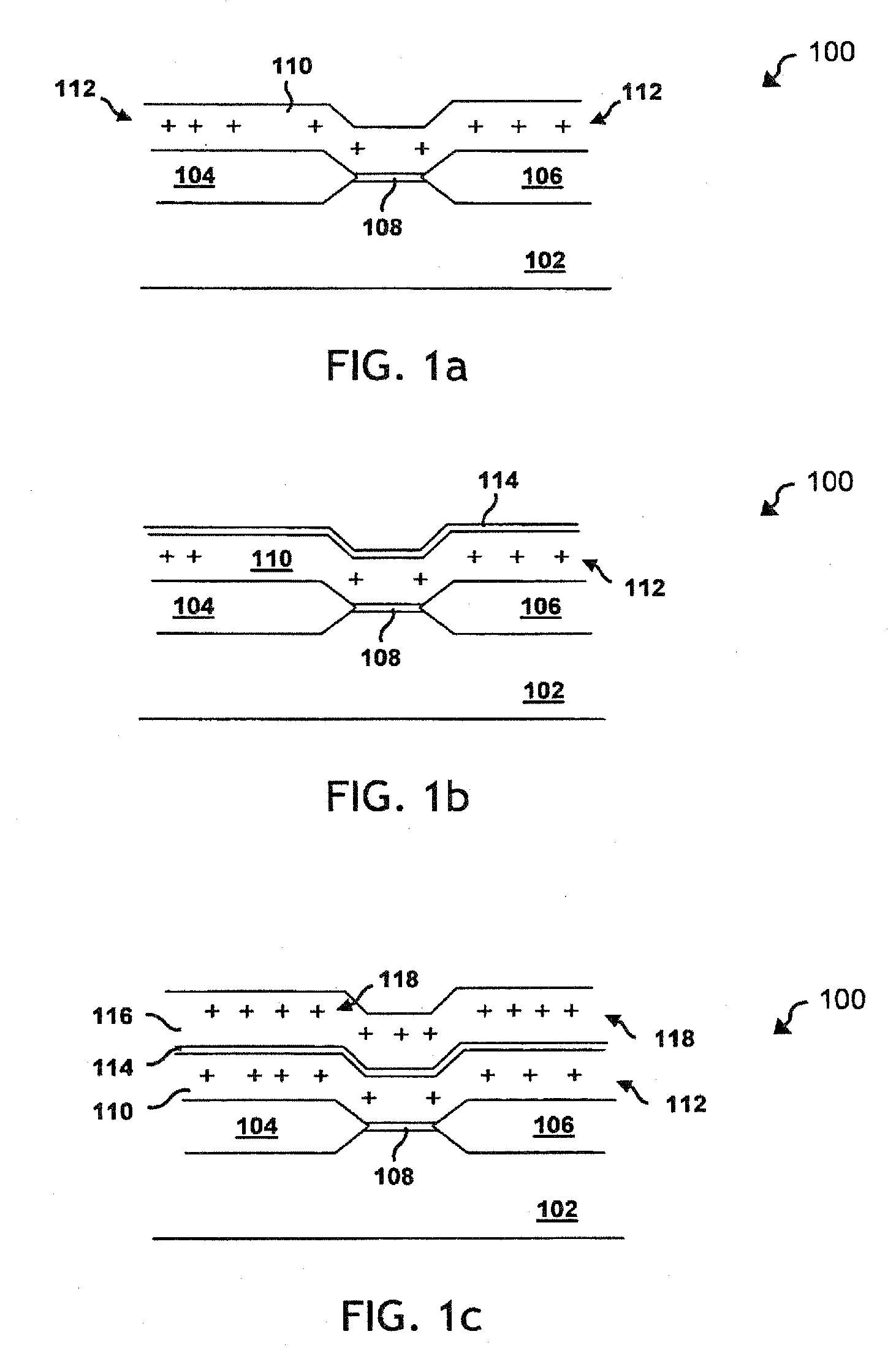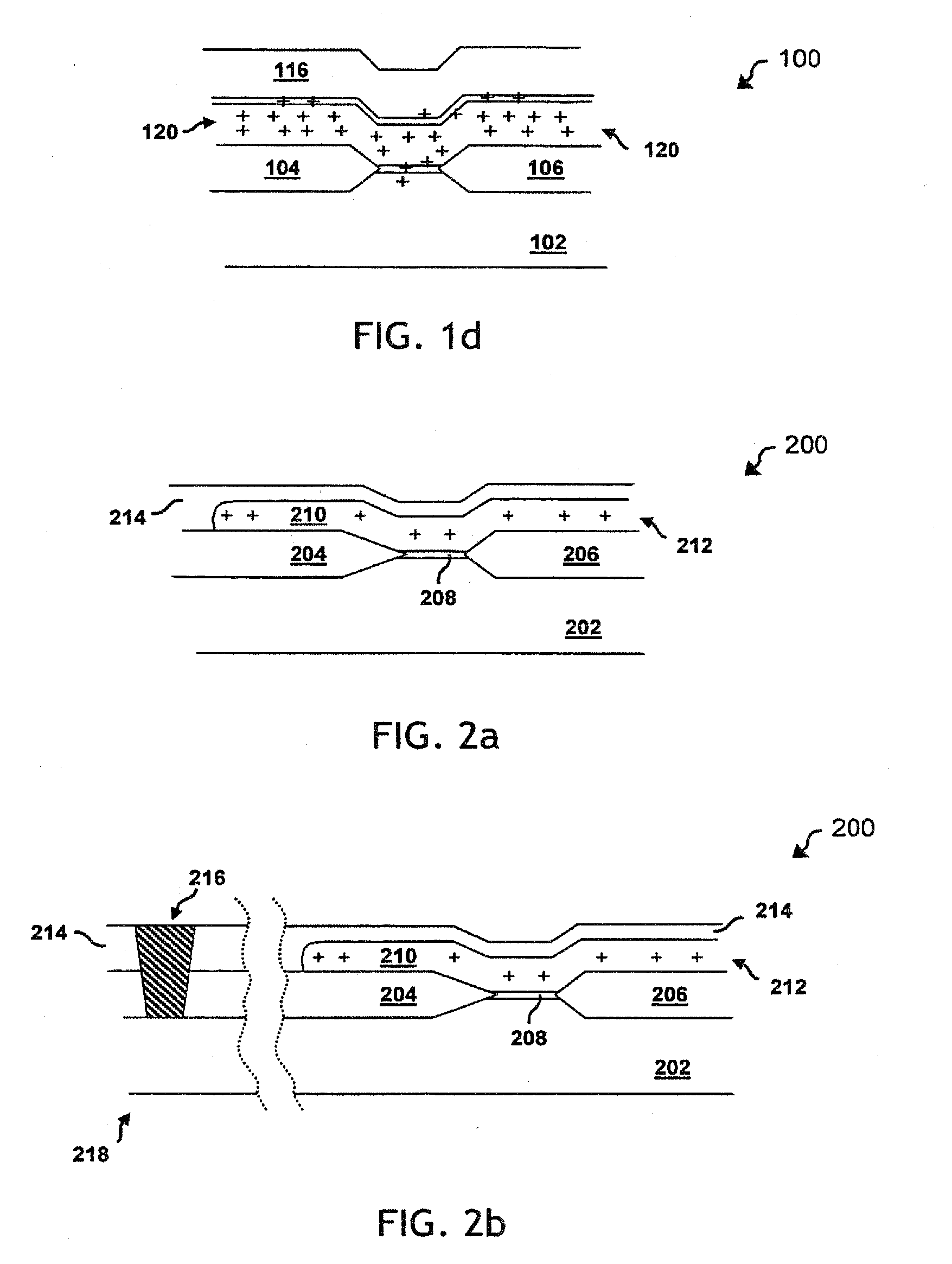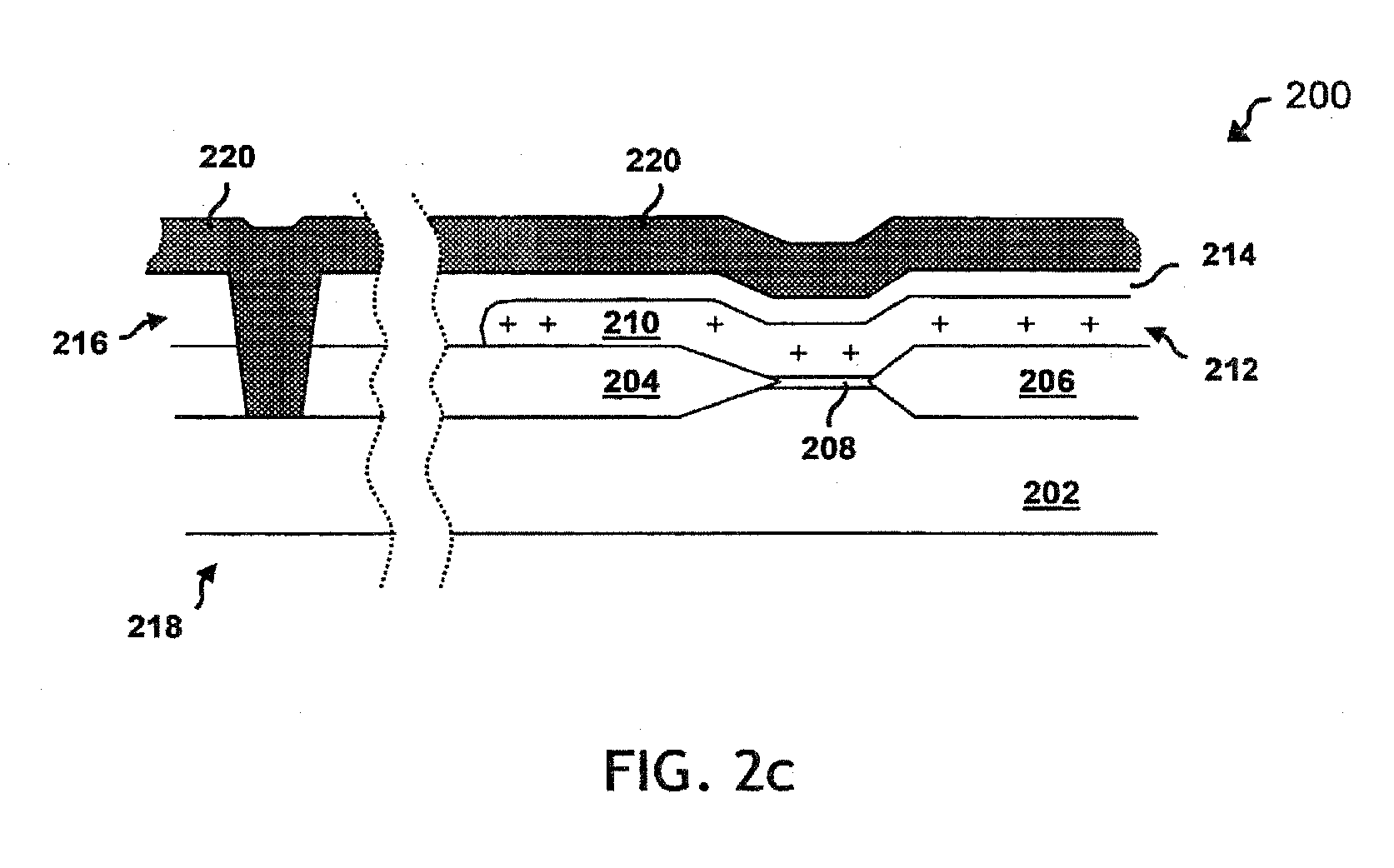Versatile system for charge dissipation in the formation of semiconductor device structures
a semiconductor device and charge dissipation technology, applied in the field of semiconductor devices, can solve the problems of further compounding problems, damage to or destruction of the structure, etc., and achieve the effects of effective dissipation of charge accumulated, simple yet effective, and improved overall process yield and device reliability
- Summary
- Abstract
- Description
- Claims
- Application Information
AI Technical Summary
Benefits of technology
Problems solved by technology
Method used
Image
Examples
Embodiment Construction
[0019] While the making and using of various embodiments of the present invention are discussed in detail below, it should be appreciated that the present invention provides many applicable inventive concepts, which can be embodied in a wide variety of specific contexts. Certain aspects of the present invention are hereafter illustratively described in conjunction with the formation of semiconductor capacitor structures having polysilicon and metal (e.g., Ti, Al) conductive layers. The specific embodiments discussed herein are, however, merely demonstrative of specific ways to make and use the invention and do not limit the scope of the invention.
[0020] The present invention recognizes that electrical charge is induced in certain conductive semiconductor structures or layers (e.g., polysilicon, metal) during a number of fabrication processes (e.g., deposition, implant, plasma etch). Often that charge accumulates within a particular structure or layer, having no means to dissipate. ...
PUM
 Login to View More
Login to View More Abstract
Description
Claims
Application Information
 Login to View More
Login to View More - R&D
- Intellectual Property
- Life Sciences
- Materials
- Tech Scout
- Unparalleled Data Quality
- Higher Quality Content
- 60% Fewer Hallucinations
Browse by: Latest US Patents, China's latest patents, Technical Efficacy Thesaurus, Application Domain, Technology Topic, Popular Technical Reports.
© 2025 PatSnap. All rights reserved.Legal|Privacy policy|Modern Slavery Act Transparency Statement|Sitemap|About US| Contact US: help@patsnap.com



